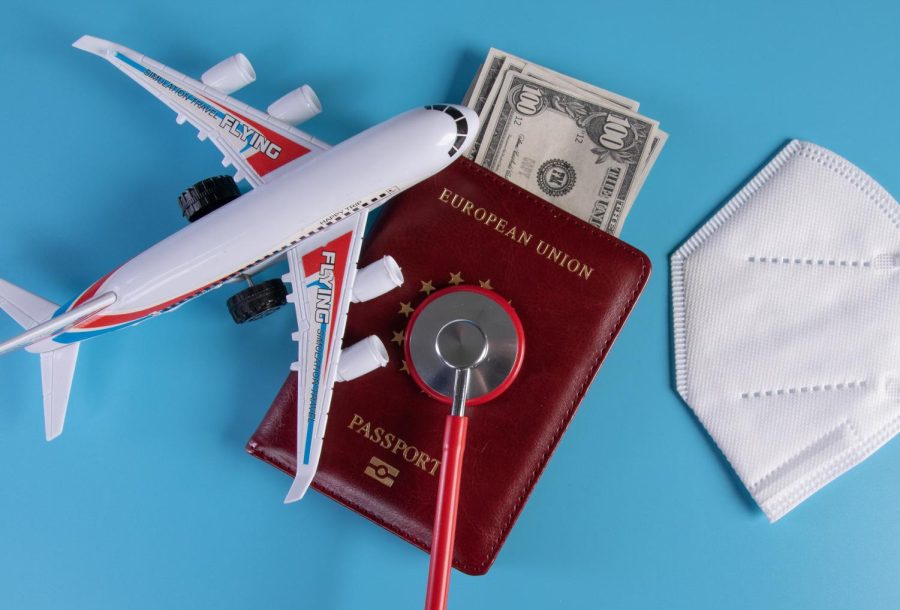Effects of COVID on International Travel
February 3, 2022
It’s no surprise the ongoing COVID-19 pandemic has impacted the travel industry immensely, specifically international travel. Due to the severe health risks COVID-19 has brought, countries have implemented unique requirements for tourism. Even getting through customs can be a challenge if the tourist does not follow the correct testing measures or safety procedures. Many are choosing to avoid international travel when possible, due to the risk of being exposed to or contracting the virus while outside of the United States.
International travel isn’t just complex for travelers, but also for airlines. Before the Centers for Disease Control (CDC) announced the new shortened quarantine guidelines, finding a crew to staff a flight was becoming a challenge. Just over a month ago, over 2,000 flights were unexpectedly canceled due to staff shortages as the Omicron variant caused cases to skyrocket.
The CDC’s new guidelines have been controversial, and Delta Air Lines in particular is taking advantage of the shortened quarantine period, now offering their vaccinated employees only a 5-day paid leave if they test positive for COVID-19. The shortened leave allows Delta’s employees to return back to work faster, causing fewer canceled flights and staff shortages. Financially, the new quarantine period has been beneficial to airlines like Delta.
While it may not be the safest choice, some countries are having to open up their borders to save their economy. Reliance on tourism for economic support is fueling some countries to relax their COVID-19 restrictions. In 2018, before the COVID-19 pandemic, Spain’s tourism accounted for 13.5% of their employment. For reference, Spain’s agriculture industry only accounts for 4% of their total employment.
To help keep tourists and citizens safe, most EU countries like France and Spain are requiring a ‘covid certificate’ in order to enter the country. This certificate authenticates if the individual is either vaccinated or has tested negative within the past 72 hours. Testing upon arrival and a no-tolerance policy on exposures to COVID-19 in the past 14 days are other measures France has in place.
However, it’s important to keep in mind that not all countries’ borders are open for tourism or travel due to the virus. China’s borders have been closed since March 2020 and are still closed today with a few exceptions.
Continuing to travel is necessary, and so is making sure that you are safe. If you’re considering traveling anytime soon, be sure to keep tabs on the tourism restrictions.



